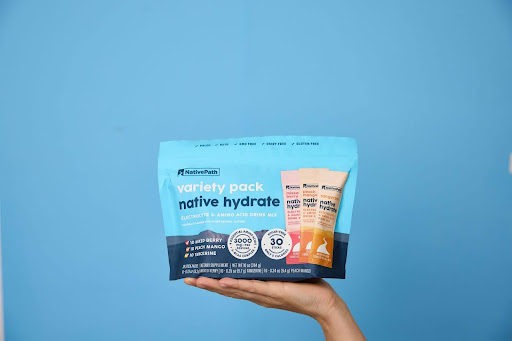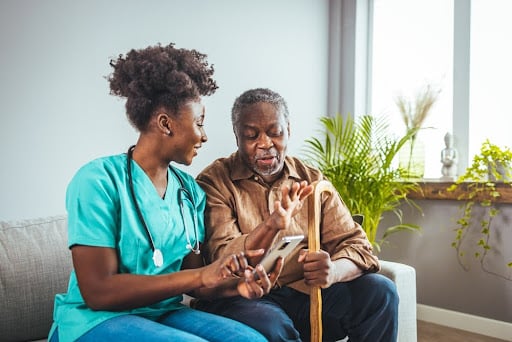|
|
|
|
|
|
Welcome to Your Daily Dot where Dot will share tips, advice, and stories on how we can make our world better.
|
|
|
|
|
If you purchase anything via one of our links, including from Amazon, we may earn a small commission.
All Dear Dot illustrations by Elissa Turnbull.
|
|
|
|
|
Dot thinks you'll love this story about helping refugees assimilate by participating in community gardens and another story about how prepping for disaster can help a community come together.
And speaking of community, Dot heard from a reader wondering about the value in us coming together … and responds with a few community-building tips. Read on.
Dear Dot,
I keep hearing people talk about how important it is to build community as we confront a warming planet. But I live in a medium-sized city where people keep to themselves, so I’m not sure how to do that … or even really why I should. Help?
– Shawna
Dear Shawna,
I, too, have noticed that the buzz around community-building is growing louder, mixed in with warnings about “collapse” and “breakdown.” It can be hard to keep a cool head when confronted with predictions that sound like the plot of a dystopian sci-fi.
But whether or not we’re on the brink of societal and/or ecological collapse, the idea of creating community remains a good one. For a start, we know that loneliness is a problem, with almost one-quarter of people around the world reporting that they feel lonely. Robert D. Putnam, in his book Bowling Alone, argues that reduced civic engagement is leading to growing isolation.
Assuming we accept the premise that we are lonelier and more isolated (and not everyone agrees that loneliness is, in fact, an epidemic), then community-building seems a good idea. But even if, instead, we accept Our World in Data’s reportage that loneliness has remained fairly consistent over time, Dot maintains that community-building is still an important piece of climate action. Consider this, from renowned scientist, broadcaster, and climate activist David Suzuki, who recently told a reporter that “The units of survival are going to be local communities, so I’m urging local communities to get together.” With increasing emergencies in the form of earthquakes, floods, droughts, and storms, he says, “governments will not be able to respond on the scale or speed that is needed for these emergencies.”
Citizens, Suzuki says, are “going to be at the front line of whatever hits and [had] better be sure [they’re] ready to meet it. …”
So … what can we do? Read on.
|
|
|
|

|
Be among the first to experience a Bluedot Living–curated travel experience, where you’ll connect with local environmental change-makers and enjoy carefully designed all-inclusive itineraries and farm-to-table dining, all in exquisite locales. With five trips scheduled for 2026, ranging from Hollywood, California, to Martha’s Vineyard and Nantucket, there’s a destination to suit every traveler.
|
| Explore Our Destinations
|
|
|
|
|
Paid Advertisement with NativePath
|
What if the solution to muscle spasms, bladder issues, fatigue, and brain fog…Was hiding in your water?
|
 |
An estimated 75 percent of Americans are chronically dehydrated. The cause can be as simple as not drinking enough water, or from taking certain medications, and consequently, your cells are unable to function properly.
NativePath’s Hydrate drink mix is made with 100% clean Ingredients, zero sugar, and high bioavailability. It includes
essential minerals—like sodium, potassium, chloride, magnesium, and calcium—that are vital to many key functions in the body, along with Amino Acids to enhance muscle recovery and all 9 essential amino acids.
Restore Whole-Body Hydration with NativePath’s Hydrate.
|
| Get 44% off + Free Shipping with this link.
|
|
|
|
|
|
|
|
|
Paid Advertisement with Money
|
Could Your Home Pay for Long-Term Care? |
 |
Many of us dream about growing old comfortably in the home we love. But as care needs increase, so do the costs, often reaching over $5,000 a month for in-home assistance. If you’re 62 or older, a reverse mortgage can offer a practical solution by turning home equity into tax-free cash (without giving up ownership or moving out). That means you can stay in familiar surroundings, get the care you need, and preserve your independence – all on your terms.
To qualify for a reverse mortgage,
you must meet the following requirements:
You must be at least 62 years old.
You must own your home outright or have a low remaining mortgage balance that can be paid off at closing with reverse mortgage proceeds.
The home must be your primary residence (not a second home or rental property).
Eligible properties include single-family homes, FHA-approved condos, townhomes, and certain multi-unit properties (up to 4 units, as long as you live in one).
You must demonstrate the ability to pay property taxes, homeowners insurance, and maintenance costs.
You must complete a HUD-approved reverse mortgage counseling session to ensure you understand the loan terms and implications.
|
| Check out Money’s list of the best reverse mortgage providers to explore some top-rated options.
|
|
|
|
|
|
|
|
|